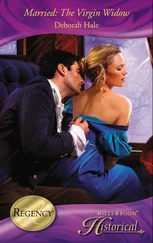Jean Plaidy - Katharine, the Virgin Widow
Здесь есть возможность читать онлайн «Jean Plaidy - Katharine, the Virgin Widow» весь текст электронной книги совершенно бесплатно (целиком полную версию без сокращений). В некоторых случаях можно слушать аудио, скачать через торрент в формате fb2 и присутствует краткое содержание. Жанр: Старинная литература, на английском языке. Описание произведения, (предисловие) а так же отзывы посетителей доступны на портале библиотеки ЛибКат.
- Название:Katharine, the Virgin Widow
- Автор:
- Жанр:
- Год:неизвестен
- ISBN:нет данных
- Рейтинг книги:3 / 5. Голосов: 1
-
Избранное:Добавить в избранное
- Отзывы:
-
Ваша оценка:
- 60
- 1
- 2
- 3
- 4
- 5
Katharine, the Virgin Widow: краткое содержание, описание и аннотация
Предлагаем к чтению аннотацию, описание, краткое содержание или предисловие (зависит от того, что написал сам автор книги «Katharine, the Virgin Widow»). Если вы не нашли необходимую информацию о книге — напишите в комментариях, мы постараемся отыскать её.
Katharine, the Virgin Widow — читать онлайн бесплатно полную книгу (весь текст) целиком
Ниже представлен текст книги, разбитый по страницам. Система сохранения места последней прочитанной страницы, позволяет с удобством читать онлайн бесплатно книгу «Katharine, the Virgin Widow», без необходимости каждый раз заново искать на чём Вы остановились. Поставьте закладку, и сможете в любой момент перейти на страницу, на которой закончили чтение.
Интервал:
Закладка:
Jean Plaidy
Katharine, the Virgin Widow
The Arena
THE SUN PICKED OUT SHARP FLINTS IN THE GRAY WALLS OF the towers so that they glinted like diamonds. The heat was great, and the courtiers sweated beneath their stomachers over which their doublets were elegantly laced; they did not move even to throw back their long loose-sleeved gowns. Each man and woman among them was intent on what was going on in the arena before them, where a lion—one of the finest and fiercest in the King’s menagerie—was engaged in a bloody fight with four English mastiffs. The dogs were sturdy and game; but this lion had never been beaten. He roared his contempt of the four dogs, and the spectators cheered him.
“Now, Rex, get to work,” shouted a boy who was seated among the royal party. His cheeks were ruddy, his hair gleamed reddish gold in the sunlight; and his voice was shrill with excitement.
The girl who sat beside him, and who was a few years older, laid a restraining hand on his arm; and several people let their attention stray from the animals to the children. Many found themselves catching the boy’s excitement, for there was something infectious about the vitality and gaiety of young Prince Henry.
As for Henry, he was aware of nothing but the fight in the arena. He wanted the mastiffs to win, yet he did not believe they could. Rex was the finest lion in the world, which was why he had been called Rex.
The King from his seat of honor was watchful. He sat erect, not so magnificently attired as many of his subjects, for he was a man who resented wasting money on outward show. Money, in his opinion, should be used to create more money. It had been his policy ever since Bosworth Field. And the result? A depleted treasury was now a full one, carefully watched over by the King’s miserly eye, continually augmented by his clever schemes; although he would be the first to admit that he owed a great deal to those two able ministers of his—Richard Empson and Edmund Dudley—who now sat near the royal party, their lawyers’ eyes alert.
The King’s gaze rested briefly on his Queen—a beautiful woman of whom he was secretly proud. But he was not a man to show his feelings and would never allow Elizabeth of York to know how much he esteemed her. When a man’s claim to the throne was doubtful, when there was the hint of bastardy among his forbears, he must be careful. Henry VII was a careful man.
Elizabeth had been a good wife and he had never regretted the marriage, even when he considered his early love for Maud Herbert and his more mature passion for Katherine Lee. He was not a man who would allow his emotions to interfere with his ambitions.
Once Richard III had been defeated, once Henry knew that the great ambition was about to be realized, he had ceased to think of Katherine Lee; he had known there was only one suitable bride for him, and that was Elizabeth of York, that the Houses of York and Lancaster might thus be united and bring peace to England. Henry VII would never wage war if he could help it, for to him it represented the loss of gold.
He looked at his family and allowed his feeling of pleasure temporarily to turn up the corners of his stern mouth. Two sons and two daughters.
“Fair enough, fair enough,” he murmured to himself.
Elizabeth had been six times pregnant and they had lost only two so far, which, considering the fate of most children, was good fortune indeed.
It was true that Arthur, the eldest and Prince of Wales, who was not quite fifteen, was a sickly boy. He was handsome enough with his pretty pink and white complexion, but that was not in his case the sign of health. Arthur coughed too much; there were occasions when he spat blood; yet he lived.
Perhaps there would have been cause for anxiety if Arthur had not possessed such a brother as Henry. There was a Prince to delight the eyes of any parent. Glances were even now straying to this ten-year-old boy. It was the same when they went among the people. It was young Henry whom the people called for. It was for him they had their smiles. Fortunately, Arthur had the sweetest temper and knew no envy. But perhaps he was too tired to feel envy; perhaps he was grateful to this robust, vital brother who could appear so fresh at the end of a day’s riding, who always knew how to respond to the people’s applause.
Between the two boys sat Margaret, a dignified Princess, looking older than twelve, keeping a watchful eye on her exuberant brother Henry who, strangely, did not seem to resent this. It was pleasant to see such affection between a brother and sister. And on the other side of Henry sat Mary, an enchanting creature of five years, a little wilful, because she was so pretty perhaps and doubtless over-pampered because of it.
Four children, mused the King, and Arthur the only one whose health gives cause for anxiety. Edward’s daughter has done her duty well.
The Queen turned to him and was smiling. She read his thoughts. She knew that he was studying the children and had been thinking: There’s time for more.
Elizabeth of York stilled the sudden resentment which rose within her. The only real desire her husband would feel would be for the aggrandizement of the throne. She was dear to him, she knew, not because of any beauty or talents she might possess, but because she was the daughter of Edward IV, and when she married him the union had brought peace to England; she had also given him children, four of whom were living.
There was tension among the spectators, and the King’s attention was now on the arena, where the battle was not going according to expectations. Rex was lying on his back while one of the mastiffs had him by the throat; the others were leaping on him, tearing his flesh, their jaws bloody.
Prince Henry had risen to his feet.
“They have beaten Rex,” he cried. “Oh, bravo…bravo!”
The cry was taken up among the spectators, as the body of Rex lay lifeless and the dogs continued to worry it.
The Queen leaned slightly towards the King.
“I would not have believed that the dogs could defeat the lion.”
The King did not answer, but beckoned to one of the keepers of his menagerie.
“Take the dogs away,” he said; “remove the carcass of the lion and then return to me.”
As the man bowed low and went off to obey the King’s command, an excited chatter broke out among the children.
Henry was shouting: “Did you see ? Arthur, did you see…?”
Arthur was pale. He murmured: “I like not these sports.”
Henry laughed at him. “I like sport better than anything in the world, and never have I seen such a battle.”
Mary asked: “What has happened to the lion?” But no one took any notice of her.
Margaret gripped Henry’s arm. “Be silent,” she whispered. “Do you not see that our father is displeased?”
Henry turned to stare at the King. “But why…” he began. “I should have thought it was good sport. I…”
The King’s stern eyes rested on his son. “Henry,” he said, “one day you will learn that what you think is of far more interest to yourself than to others.”
Henry looked puzzled, but it was impossible to check his exuberance.
The King signed to one of the keepers. “Let the bears and the ban-dogs be brought on,” he said.
THE COMPANY STARED AGHAST.
Before them in the arena scaffolds had been set up and on these hung the bodies of the four English mastiffs, the dogs which, but half an hour before, had conducted themselves so valiantly against the King’s fiercest lion.
The King silently watched the assembly. His chief counsellors, Dudley and Empson, watched also.
Читать дальшеИнтервал:
Закладка:
Похожие книги на «Katharine, the Virgin Widow»
Представляем Вашему вниманию похожие книги на «Katharine, the Virgin Widow» списком для выбора. Мы отобрали схожую по названию и смыслу литературу в надежде предоставить читателям больше вариантов отыскать новые, интересные, ещё непрочитанные произведения.
Обсуждение, отзывы о книге «Katharine, the Virgin Widow» и просто собственные мнения читателей. Оставьте ваши комментарии, напишите, что Вы думаете о произведении, его смысле или главных героях. Укажите что конкретно понравилось, а что нет, и почему Вы так считаете.










